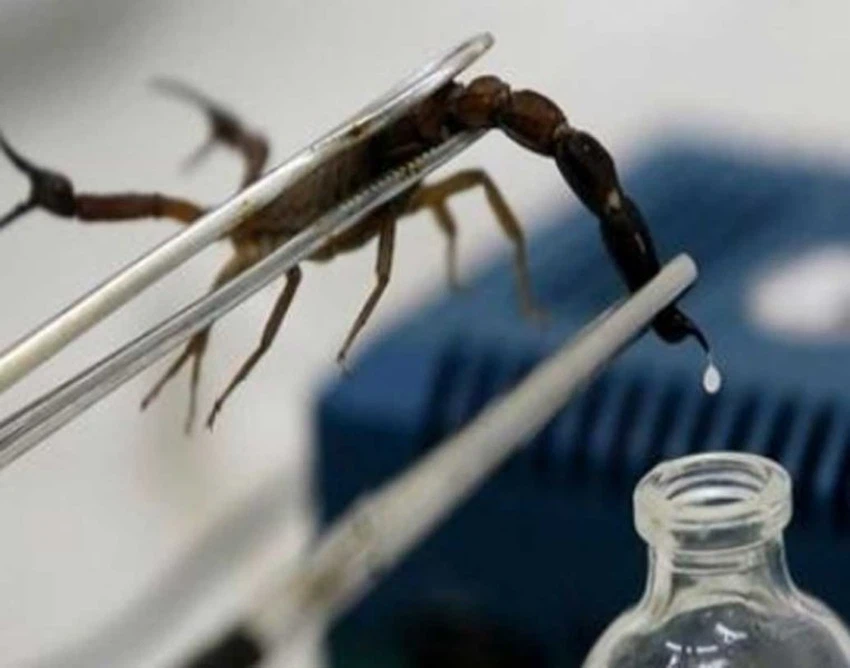Moroccans are developing a machine that extracts venom from scorpions to take advantage of the therapeutic benefits of the most expensive and lethal venom
Weather of Arabia - Many of us may not know this, but scorpion venom is not only a means used by scorpions to defend themselves, it is used in immunity, anti-malarial drugs and cancer research, but collecting poison can be dangerous, which is why one of the people developed “ milking machine” to do the job.
Usually, scorpion venom is obtained either by electrical stimulation by hand, or by puncturing the gland containing the venom. Unfortunately, the first method exposes practitioners to the risk of injuries and electric shocks, while the second is harmful to the animal itself, and here comes the role of the robotic robot (VES-4), which safely extracts venom from scorpions.

The VES-4 robotic robot is designed for use in the lab or field by one person, and can accommodate up to four scorpions at a time (the number can be increased as the device develops), using clamps to gently hold them in place.
When attached, built-in electrodes are used to deliver electric shocks, causing the scorpions to release droplets of venom that are collected in a removable vial. Once you finish milking the venom, the insects are released unharmed.
The infrared remote control allows users to operate the device from a safe distance, although they are still handling the scorpions as they are put in and out.

Researcher Moaz Makamel from the Faculty of Sciences Benmic, affiliated to Hassan II University in Casablanca, who supervised the design process of the device, said that this new technology will enable the safe extraction of larger quantities of scorpion venom for medical use. Research on scorpion venom is receiving great attention for its multiple uses in different areas of treatment, such as treating cancer, creating new pain relievers, and developing organ transplants.
The benefits of scorpion venom in medicine
Ironically, scorpion venom is the deadliest and most expensive. At $8000 per gram, scorpion venom holds a variety of "exciting medical prospects" and is used to develop drugs against malaria and cancer, two very deadly diseases.
In research into developing new cancer treatments, researchers from the Fred Hutchinson Cancer Research Center, the University of Washington, and the startup Blaze Bioscience have developed a so-called "tumor coating," which uses fluorescent particles attached to natural toxins, such as scorpion venom, to light up cancer cells. This clinically trialled method enables doctors to pinpoint the exact location of tumors and measure the extent of cancerous growth in the body.
Researchers are also working on trials to use the natural compounds in scorpion venom as a pain reliever. Research published in 2013 found that scorpion venom stops nervous tension in mice and grasshoppers, meaning that the venom acts as a pain reliever. The researchers hope that these results will eventually lead to the development of a new drug for pain relief in humans.
Researchers have found that scorpion venom or a synthetic version of it can be used in immunosuppressive drugs. These medications are used to reduce the body's ability to reject a transplanted organ. Immunosuppressants often cause serious side effects to patients, so the development of new and safe types of them will have an important impact on the development of organ transplantation techniques.
Some research suggests that scorpion venom can prevent bone loss, making it a useful substance for treating conditions such as arthritis. Other research has also found that this substance is effective in fighting malaria. In 2011, a researcher from the University of Maryland succeeded by modifying a parasitic fungus loaded with substances found in scorpion venom to attack and eliminate the malaria parasites inside mosquitoes.
Arabia Weather App
Download the app to receive weather notifications and more..



